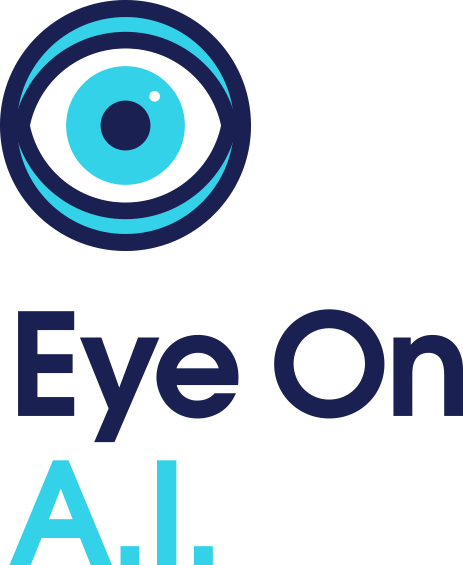Week Ending 12.16.18
RESEARCH WATCH: 12.16.18
Note: This will be our last newsletter this year. We will be returning in early 2019.
Over the past week, 214 new papers were published in "Computer Science".
The paper discussed most in the news over the past week was "ChauffeurNet: Learning to Drive by Imitating the Best and Synthesizing the Worst" by Mayank Bansal et al (Dec 2018), which was referenced 60 times, including in the article Elon Musk promises Autopilot update to allow for “no driver input at all” in ArsTechnica. The paper author, Mayank Bansal, was quoted saying "The model learns to respond properly to traffic controls such as stop signs and traffic lights. However, deviations such as introducing perturbations to the trajectory or putting it in near-collision situations cause it to behave poorly, because even when trained with large amounts of data, it may have never seen these exact situations during training".
Leading researcher Yoshua Bengio (Université de Montréal) published "Speech and Speaker Recognition from Raw Waveform with SincNet".
Over the past week, 33 new papers were published in "Computer Science - Artificial Intelligence".
The paper discussed most in the news over the past week was by a team at New York University: "Deep Learning: A Critical Appraisal" by Gary Marcus (Jan 2018), which was referenced 37 times, including in the article A 2019 Forecast for Data-Driven Business: From AI to Ethics in Forbes.com. The paper author, Gary Marcus (New York University), was quoted saying "the patterns extracted by deep learning are more superficial than they initially appear." The paper also got the most social media traction with 3100 shares.
This week was active for "Computer Science - Computers and Society", with 34 new papers.
The paper discussed most in the news over the past week was by a team at University College London: "On the Origins of Memes by Means of Fringe Web Communities" by Savvas Zannettou et al (May 2018), which was referenced 152 times, including in the article Memes are taking the alt-right’s message of hate mainstream in The Next Web. The paper author, Jeremy Blackburn (University of Alabama at Birmingham), was quoted saying "There may be 100 racists in your town, but in the past they would have to find each other in the real world. Now they just go online". The paper got social media traction with 398 shares. The researchers detect and measure the propagation of memes across multiple Web communities, using a processing pipeline based on perceptual hashing and clustering techniques, and a dataset of 160M images from 2.6B posts gathered from Twitter, Reddit, 4chans Politically Incorrect board (/pol/), and Gab over the course of 13 months.
Over the past week, 23 new papers were published in "Computer Science - Human-Computer Interaction".
The paper discussed most in the news over the past week was by a team at U.S. Army Research Laboratory: "Efficiently Combining Human Demonstrations and Interventions for Safe Training of Autonomous Systems in Real-Time" by Vinicius G. Goecks et al (Oct 2018), which was referenced 4 times, including in the article Lab reveals top 10 coolest science, technology advances from 2018 in EurekAlert!.
Over the past week, 15 new papers were published in "Computer Science - Multiagent Systems".
The paper discussed most in the news over the past week was by a team at Michigan State University: "Efficient Large-Scale Fleet Management via Multi-Agent Deep Reinforcement Learning" by Kaixiang Lin et al (Feb 2018), which was referenced 1 time, including in the article Car-hailing firm Didi has a new dispatching algorithm that adapts to rider demand in Technology Review. The paper got social media traction with 9 shares.
Over the past week, 22 new papers were published in "Computer Science - Neural and Evolutionary Computing".
The paper discussed most in the news over the past week was "A Style-Based Generator Architecture for Generative Adversarial Networks" by Tero Karras et al (Dec 2018), which was referenced 38 times, including in the article None Of These People Exist They Are All Made By An Artificial Intelligence Tool From NVIDIA in Indiatimes.
Over the past week, 35 new papers were published in "Computer Science - Robotics".
The paper discussed most in the news over the past week was "ChauffeurNet: Learning to Drive by Imitating the Best and Synthesizing the Worst" by Mayank Bansal et al (Dec 2018), which was referenced 60 times, including in the article Elon Musk promises Autopilot update to allow for “no driver input at all” in ArsTechnica. The paper author, Mayank Bansal, was quoted saying "The model learns to respond properly to traffic controls such as stop signs and traffic lights. However, deviations such as introducing perturbations to the trajectory or putting it in near-collision situations cause it to behave poorly, because even when trained with large amounts of data, it may have never seen these exact situations during training".
Leading researcher Pieter Abbeel (University of California, Berkeley) published "Soft Actor-Critic Algorithms and Applications".

